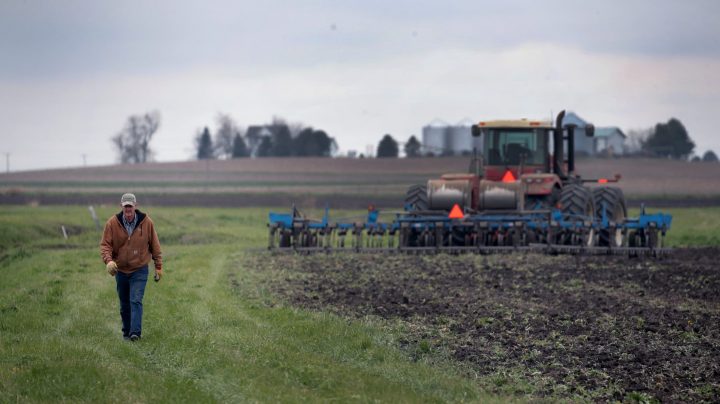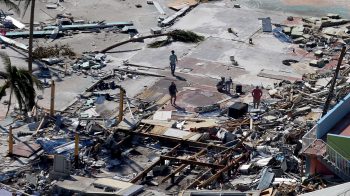
Hurricane Ian spares fertilizer plants but sends a warning to the U.S. industry
Hurricane Ian spares fertilizer plants but sends a warning to the U.S. industry

Hurricane Ian narrowly missed landing a serious blow to the domestic fertilizer industry. About half of the phosphate fertilizer in the U.S. comes from three plants in the Tampa, Florida, region, and in the past, hurricanes have knocked them offline. If Ian had done so, it would have been yet another headache for a fertilizer industry that’s already dealing with the impact of Russia’s war on Ukraine and energy shortages in Europe.
While American farmers dodged a bullet when Ian missed the plants, the fertilizer industry got a warning to do things differently.
Fertilizer has three main ingredients: nitrogen, potassium, and phosphorus.
And just a few places in the world have a lot of phosphorus that’s relatively cheap to mine: China, Morocco and Florida.
“So when you cut off any one of them, you wind up having a fairly significant supply shock in the market,” said Chris Barrett, an agricultural and food economist at Cornell University.
The major phosphate miner in Florida is a company called Mosaic. It said it’s evaluating the impact of Hurricane Ian on its facilities.
The U.S. Department of Agriculture said Mosaic seems to have missed the brunt of the storm.
“The fertilizer industry got very lucky, as did Mosaic,” said Alexis Maxwell, an analyst with Bloomberg Intelligence.
Lucky because the price of fertilizer has nearly tripled in the last two years.
Maxwell said the increasing frequency and ferocity of these storms show how important it is to plan for the impact of climate change.
“It’s becoming a more normal part of operating a business,” she said.
Meanwhile, farmers have been turning to techniques to help minimize the amount of phosphate they need — testing soil, for example, and applying fertilizer only where it’s needed.
Joe Glauber is with the International Food Policy Research Institute, and he’s also a former chief economist at the USDA.
“I’d say, 10, 20 years ago, you saw a lot more fertilizer being used largely just because it was done so so ineffectively,” said Joe Glauber with the International Food Policy Research Institute. He’s also a former chief economist at the USDA.
There are also alternatives to being dependent on three mines in Florida for phosphate fertilizer.
“We need to be thinking much more carefully about how we capture all the phosphorus and nitrogen and potassium and other nutrients that are in our waste streams,” said Cornell economist Barrett.
Which is to say animal and human waste. It may feel a little yucky, but it’s hurricane-proof.
There’s a lot happening in the world. Through it all, Marketplace is here for you.
You rely on Marketplace to break down the world’s events and tell you how it affects you in a fact-based, approachable way. We rely on your financial support to keep making that possible.
Your donation today powers the independent journalism that you rely on. For just $5/month, you can help sustain Marketplace so we can keep reporting on the things that matter to you.

















